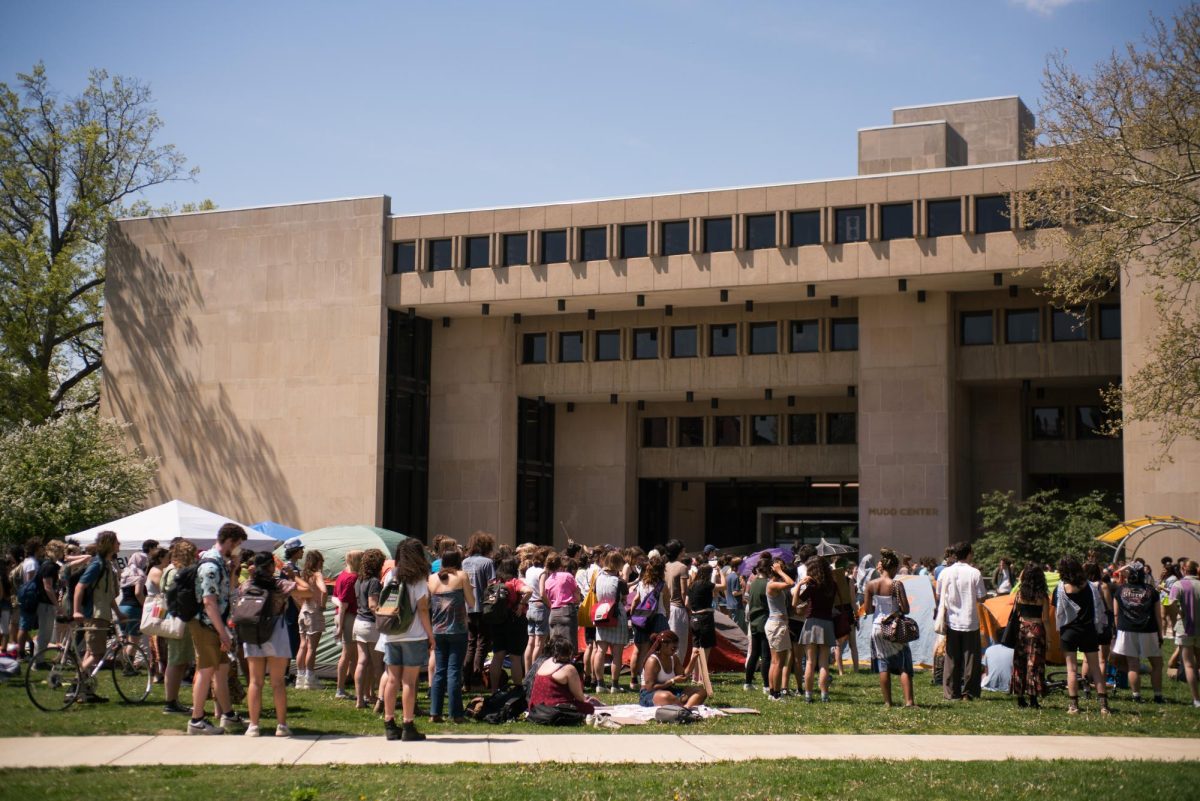On Sept. 15, 1963, 61 years ago, four young girls — 14-year-olds Addie Mae Collins, Denise McNair, and Carole Robertson and 11-year-old Cynthia Wesley — were murdered in a bombing at the 16th Street Baptist Church in Birmingham, AL. This brutal act of racial terrorism shocked the world, igniting outrage and uniting voices across racial lines in the ongoing fight for civil rights. My grandmother often shares her memory of that day — newly graduated from Towson University, she was overcome with fear and heartbreak as she read the news. Clutching the newspaper, she asked herself, “When will enough be enough?”
Decades later, that same question remains unanswered. Earlier this summer, I mourned the loss of Sonya Massey, a Black woman killed by a police officer — yet another tragic reminder of the systemic violence that still plagues Black communities. As I watched the video footage of her murder, I found myself asking once again, “When will enough be enough?” But when a question is repeated over decades without meaningful change, it begins to lose its power.
That realization hit me again Sept. 11, when I learned of Javion Magee’s death in Henderson, NC. His life was cruelly taken, his body found next to a tree with a rope around his neck. While the investigation is ongoing, and I hold out hope for justice and the truth of what occurred, the familiar scene left me with a sense of frustration and sorrow.
I write today not only to honor the lives of Javion Magee, Sonya Massey, Addie Mae Collins, Denise McNair, Carole Robertson, and Cynthia Wesley, but also to urge us to confront a hard truth: it’s time to stop asking “When will enough be enough?” and start demanding real, transformative change. We must go beyond mourning these losses and commit to building a future where this cycle of violence, oppression, and brutality is finally broken.
As college students, we often isolate ourselves in the world of education, choosing intellectual engagement over meaningful action. We spend hours in classrooms analyzing systemic oppression, racism, and violence, but too often fail to translate those discussions into concrete steps toward justice. I’ve been guilty of this myself — attending lectures, writing papers, and engaging in discussions while hesitating to take action outside the academic space. By doing so, we risk reducing oppression to an abstract concept, forgetting that it affects real people every day.
The deaths of Sonya Massey and Javion Magee have pushed me to write about the importance of taking action. I understand the paralysis many of us experience and how it becomes second nature to approach injustice from an intellectual standpoint. However, we must recognize the privilege we have in being able to read and discuss the painful realities others live through daily. Too often, we treat conversations about violence and death as opportunities for self-reflection rather than allowing space for grief or action. We let our rage be quelled by the belief that we are doing something by attending classes or speaking to professors. Yet, to truly honor those we have lost, we must move beyond the comfort of books. And to truly challenge the systems that profit from the labor and pain of the Black community, learning is only the first step on the path to change. Real change happens when we transform our knowledge into collective action.
As students, we have the opportunity — and responsibility — to actively contribute to our communities. This starts with raising awareness and having honest conversations, but it cannot end there. Rather than simply reposting on social media, we must invest our time and energy in rallies, protests, and vigils. I’ve been inspired by the work of the members of the organization Students for a Free Palestine, who have demonstrated the power of student-led activism. I hope to ignite that same passion in organizations such as ABUSUA and within Afrikan Heritage House in the future, as we can all take similar steps through organizing or participating in direct actions that challenge the systems of oppression within our own institutions.
This includes standing up against decisions that uphold injustice. For instance, I believe deeply in the solidarity between Black and Palestinian struggles, and I’ve been vocal in opposing the college’s rejection of divestment proposals. Whether it be fighting for Palestinians’ right to self-determination or speaking out against police brutality and systematic racism through protests, strikes, and sit-ins, there are numerous vital ways in which we can force institutions to confront their complicity in oppression. We must also stay connected to activists and movements pushing for justice outside our Oberlin bubble. Following figures like Antonio Perry (@theghettoactivist) and
@youngblackandaware on social media can help keep us informed and engaged with opportunities for action.
There are countless ways to turn our grief into action. Supporting social justice organizations through donations or volunteer work is another powerful means of contributing to the fight. The notion that we are too isolated in our college environment to make a difference is not only untrue but reflective of a privileged mindset. For example, organizations like Peel Dem Layers Back in Cleveland offer opportunities to volunteer and support youth mental health initiatives, and Oberlin Community Services provides avenues for students to make a direct impact in our local area. Transportation options for students have also become more accessible, making it easier to engage with efforts beyond campus.
While these actions may begin to disrupt the cycle of violence and oppression, they will not bring back the lives we’ve lost — Javion Magee, Sonya Massey, Addie Mae Collins, Denise McNair, Carole Robertson, Cynthia Wesley, and so many others taken by white supremacy and systemic brutality. But through sustained efforts, we can hold institutions accountable, whether it’s pressuring police departments, corporations, or universities. The power of social justice activism lies in visibility and persistence, and it’s up to us to harness that energy to push for real change.












